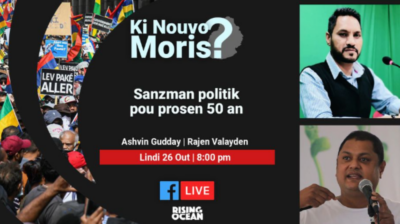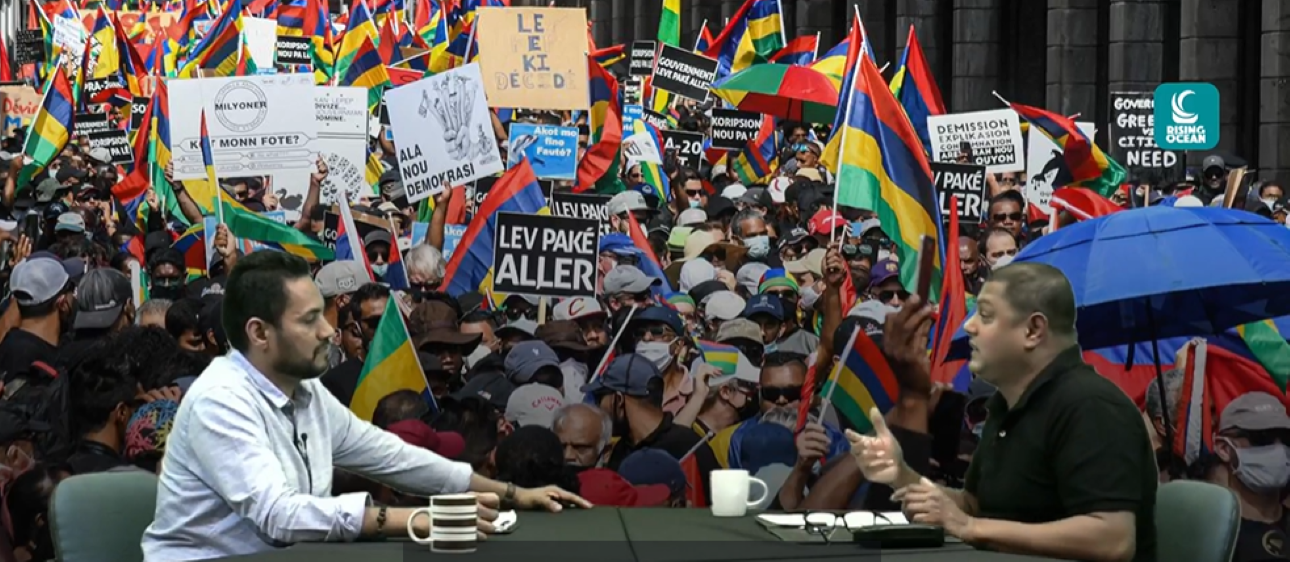Mauritius has a heavy past because it has experienced the system of slavery and indentured servitude. Institutions that deprive the individual of his freedom and exploit the human labor force. Having known such systems, the fight for independence was not easy; however, 56 years after it, it is crucial to develop a policy that will take into consideration the improvement of the lives of Mauritians for the next 50 years. To elaborate more on this subject, the set ki nouvo moris had as guest Rajen Valayden, the editor-in-chief of capital media. Ashvin Gudday was the animator.
The political situation in Mauritius as it currently stands raises many questions. Are we independent? Is Mauritius fully decolonized? For Rajen Valayden, the answer is a resounding no. Although general elections are held every 5 years in Mauritius, the power of those we elect is to be questioned.
“Are they really in power, or are they only in office but not in power? Is real political power really in the hands of the people we vote for?”
Rajen Valayden also points out that what Mauritius is currently experiencing is not an isolated case; it is the problem of the whole world.
« We have a localized and global problem; how to get through these problems—that’s what will define our survival. We will have to strike a balance at different levels, whether it is on the ecological, educational, economic, or equality aspects. »
The editor-in-chief deplores the fact that all political parties in Mauritius, whether parliamentarians and extra-parliamentarians, are in the treatment of symptoms and not the disease.
“After an in-depth reading of the electoral manifestos of different parties, I was able to observe isolated actions that are palliative care because they will help the population for a short time without really fighting the problem at its source.”
Another point raised is the lack of interest of the political parties to address the drug problem in Mauritius. Rajen Valayden confides that Mauritius is now a narco-state where the drug mafia influences the country’s economic model. The question to ask is how to get out of this? How do you solve this problem?
To conclude, the political situation in Mauritius is unprecedented. Between the institutions that are in decline, the attempts of the police to muzzle those who dare to denounce the excesses of this government and the narco-economy that is gaining more and more momentum in Mauritius, it is essential to establish a political plan for the next 50 years. Indeed, the problem must be attacked at its source because measures aimed at alleviating the situation for the short term are of no help. The survival of the Mauritian nation lies in the recognition that everything is interconnected, and this is how we will manage to find solutions that will take into consideration all the aspects of society.
Watch the show here:


